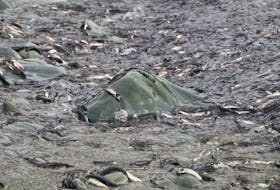In the aftermath of Trump’s action, both Justin Trudeau and Dwight Ball have repeated and reinforced their positions welcoming immigrants and refugees to our shores. Newfoundland and Labrador, in particular, is coming to recognize that bringing in newcomers from overseas is not only a just and compassionate response to human need, but also is in our own interests, and vital to secure the future prosperity and cultural richness of the region.
Newfoundland’s aging population, the departure of many of its young people and the low birthrate among those that remain pose significant challenges for the province’s future. Without intervention, employers may find themselves unable to expand due to labour and skill shortages, and the retirement and medical needs of its older people will have to be paid for by a diminishing workforce.
Our research and that of many other scholars in the area suggests that immigrants who were brought in through skilled worker programs, those who stay after arriving as international students, and those who came as refugees all contribute much more to society in the long term than they cost to support in the short term. In part these benefits are financial.
Firstly, immigrants spend their money in the local economy, they invest it here and pay taxes, all of which creates jobs in the public and private sectors. Secondly, they are more likely to start their own businesses, which create jobs for others. Thirdly, they are part of new networks of personal and professional connections that can spur international trade. Fourthly, the new ideas and cultural diversity they bring stimulates the creative sector, which will be central to the province’s future growth.
But there are many other benefits that they bring, particularly in Newfoundland and Labrador — their children help keep schools alive, and the cultural variety they bring makes Newfoundland and Labrador a more interesting place.
The Newfoundland and Labrador government is a partner in the Atlantic Growth Strategy, which has increased immigration as one of its pillars, and in the government’s Way Forward plan it set a target for 1,700 immigrants to be accepted annually by 2022 — a 50 per cent increase on current numbers. The number of migrants to the area remains low, however, compared to other parts of Canada. In 2011-12 the immigration rate was 0.7 per cent across Canada but only 0.2 per cent in Newfoundland, a pattern that has persisted for many years. Moreover, retaining the immigrants we receive can be a problem. While nearly three-quarters of skilled immigrant workers remained in the province after three years, fewer than four in 10 refugees stayed, and fewer than a quarter of Newfoundland and Labrador’s international students who become permanent residents remain in the province five years after graduation, compared to 70-80 per cent in the four most populous Canadian provinces. As a result, as of 2011 only 1.8 per cent of the population of Newfoundland and Labrador were immigrants, compared to 20 per cent of the population in Canada as a whole.
At Memorial University, we are building a network of scholars, policy-makers and organizations serving immigrants across the Atlantic provinces to spread the understanding of academic research and deepen our knowledge of the problems and issues agencies and organizations face.
The Trump administration may set immigration policy in the U.S. back for years to come, but this offers Canada and Newfoundland and Labrador an opportunity it must seize to make our land the first choice for the newcomers this country so badly needs.
We also want to make fostering immigration and supporting refugees at the centre of public debate in the coming years. Please contact us if you or an organization you work with would like to join our network.
Prof. Tony Fang and Dr. David Brake
Memorial University, St. John’s








